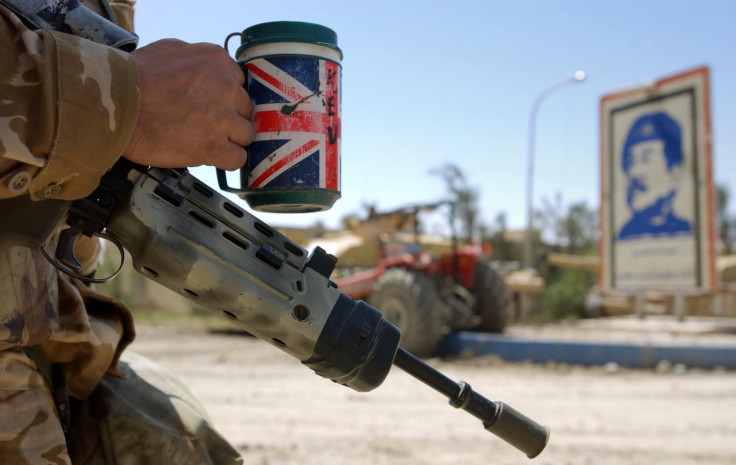Chilcot report: We owe a debt to Iraq - Britain's failures helped cause the mess the country is in today
In the 13 years since UK and US ousted Saddam Hussein, Iraq remains a byword for destruction and death.
Over 13 years since the US-led invasion and two years since Islamic State (Isis) emerged out of the deserts of Syria and conquered Iraqi cities as far south as Tikrit, it is rare to see positive headlines from Iraq. While there have been brief periods between 2003 and 2016 when Iraq has looked to be improving, they have nearly always been followed by a descent into bloodshed and chaos.
The horrific bombing that struck Baghdad on Sunday, killing some 165 people two days before the Muslim holiday of Eid, brought home the deadly reality that in the 13 years since Britain and the US ousted former Iraqi dictator Saddam Hussein, Iraq remains a byword for destruction and death. Daesh, ousted from Fallujah just last month, are still capable of inflicting havoc on the country.
The publication of the Chilcot report will undoubtedly provoke soul-searching about Britain and America's role in the creation of what is today essentially a failed state in Iraq. The US decision, in the wake of the fall of Saddam, to sack Iraq's police force and ban former Baathist officers from serving in the Iraqi military swelled the ranks of the Sunni insurgency that later became IS.
That was a catastrophic error of judgement, as was the decision to back former Iraqi prime minister Noor al-Maliki, the Shia strongman who led Iraq from 2006 to 2014 and whose style of rule was epitomised by sectarianism and corruption. Bush in particular stood by Maliki as he continually marginalised Iraq's Sunni population, fuelling anti-Shia sentiment and sympathy for groups such as Daesh and al-Qaeda.
That reached its nadir in 2010, when despite Maliki coming in second in national elections, the US sided with Shia Iran in allowing him to form a government. Once back in power, Maliki became even more divisive and reliant on Iran. Meanwhile, corruption in Iraq – endemic under Saddam – became even more entrenched, alienating ordinary Iraqis and fuelling street protests as recently as 2016.

As Emma Sky, the director of Yale World Fellows and author of The Unravelling: High Hopes and Missed Opportunities in Iraq, told IBTimes UK earlier this year: "We should've upheld the election results [in 2010] so that people had faith in the process. The decision to support Maliki was disastrous because it undermined people's belief in the political process. It could have been different.
"The mistakes of 2010 ended up ruining the political process, making Iran much more influential and providing the opening for IS," Sky said.
When in June 2014, IS stormed Mosul and seized the city, the Iraqi army and police forces abandoned the city and even during the campaign to oust the terrorist group from Tikrit, Ramadi and Fallujah, Iraq has relied on Iranian-backed Shia militias to restore order. The full consequences of the presence of heavily armed sectarian groups on the streets of Sunni cities remain to be seen.
The one hope for Iraq's stability was its economy. In 2014, buoyed by oil prices at $110 per barrel, investment had poured into Iraqi Kurdistan – the semi-autonomous Kurdish enclave in the north of the country – as well as Basra, in the south, and international oil companies were turning small areas of the country into boom towns spoken of in the same breath as Dubai and Abu Dhabi.
But the oil price slide that began in the summer of 2014 and continues to this day saw projects stopped and some oil companies pull out. As the security situation deteriorated, many Iraqis from the diaspora that had moved back to the country – both Arabs and Kurds – left. The unstable situation has been further exacerbated with the continuing erosion of oil prices now at around $40 a barrel and Iraq continues to be wracked by violence, that shows little sign of ending any time soon.
Would any of this have been different if the US and Britain had not invaded in 2003? The implosion of Syria, a Ba'athist state with similarities to Iraq, began during the Arab Spring, which ended Muammar Gaddafi's 40-year rule in Libya. In Syria, the West did nothing – in Libya, Britain intervened. How would the West have reacted to pro-democracy protesters on the streets of Iraq? We will never know.
What we do know is that in the years following the invasion, a toxic mixture of unpreparedness and arrogance coupled with an abject failure to understand the complexities of Iraq, doomed that state to the mess it is today. As we pick over a 13-year-old decision to go to war we must also look forward: the job wasn't finished in 2003 and it is not finished today. We owe a debt to Iraq, we must pay it.
© Copyright IBTimes 2025. All rights reserved.






















